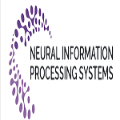This competition concerns educational diagnostic questions, which are pedagogically effective, multiple-choice questions (MCQs) whose distractors embody misconceptions. With a large and ever-increasing number of such questions, it becomes overwhelming for teachers to know which questions are the best ones to use for their students. We thus seek to answer the following question: how can we use data on hundreds of millions of answers to MCQs to drive automatic personalized learning in large-scale learning scenarios where manual personalization is infeasible? Success in using MCQ data at scale helps build more intelligent, personalized learning platforms that ultimately improve the quality of education en masse. To this end, we introduce a new, large-scale, real-world dataset and formulate 4 data mining tasks on MCQs that mimic real learning scenarios and target various aspects of the above question in a competition setting at NeurIPS 2020. We report on our NeurIPS competition in which nearly 400 teams submitted approximately 4000 submissions, with encouragingly diverse and effective approaches to each of our tasks.
翻译:这种竞争涉及教育诊断问题,在教学上是有效的,是多重选择问题,其转移因素体现了误解。随着这类问题的数量越来越多而且越来越多,教师们很难知道哪些问题最适合他们的学生使用。因此,我们试图回答以下问题:我们如何利用关于对教育诊断问题数以亿计的答复的数据,在大规模学习情景中,在人工个性化不可行的大规模学习情景中,推动自动个性化学习?成功使用教育诊断问题数据,帮助建立更聪明、个性化的学习平台,最终提高整体教育质量。为此,我们引入了一个新的、大规模、真实世界的数据集,并制定了4项关于教育诊断问题的数据挖掘任务,在NeurIPS 2020 的竞争环境中模拟真实的学习情景,针对上述问题的各个方面。我们报告了我们的NeurIPS竞争情况,近400个团队提交了约4 000份论文,其中每一项任务都有令人鼓舞的多样性和有效办法。



